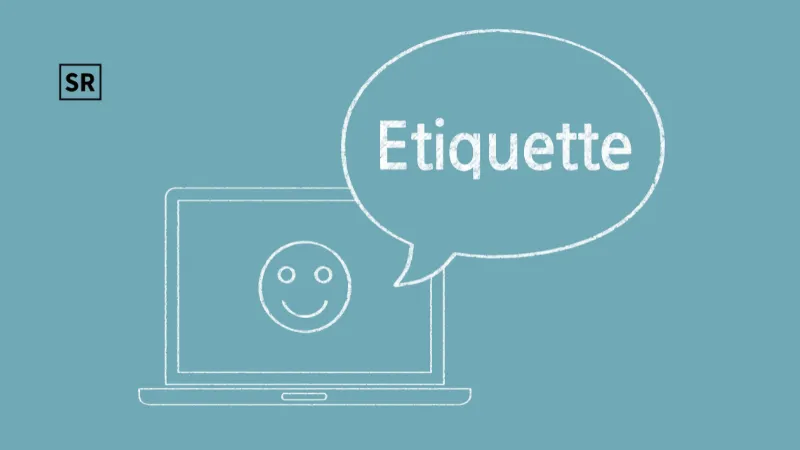
Understanding business etiquette in Spain is essential for anyone looking to build successful professional relationships—whether you're an expat, entrepreneur, or visiting executive. Spanish business culture emphasizes trust, personal connections, and a respect for hierarchy, often contrasting with the more transactional approach found in northern Europe.
Relationships matter deeply in Spain. Business often starts with informal social meetings—coffee, lunch, or after-work gatherings—before any deals are discussed. Trust takes time to build, and Spaniards prefer working with people they know well. So, patience, consistency, and face-to-face interactions are key.
Hierarchy still plays a strong role in Spanish companies. While modern practices are emerging, most decisions are made at the senior level. Respect for rank and clearly understanding the chain of command will help you navigate negotiations and formal meetings effectively.
Business Culture in Spain
Spanish business culture is hierarchical, with decisions made at the top. Punctuality is flexible—being slightly late is common. Conversations are loud and expressive, with personal topics welcome. Trust and relationships matter. Dress formally in traditional sectors, while startups allow casual wear. Physical closeness and gestures are culturally normal.
RECOMMENDED FOR YOU

Wednesday Season 2: Cast, Release Date, Episodes and Netflix
Kailee Rainse
Aug 21, 2025

Wise Plc Share Price Prediction (2025–2030): Expert Analysis & Predictions
Team SR
Jun 20, 2025
- Structured Hierarchies
- Spain has a more formal and hierarchical business structure compared to countries like the US.
- Decisions are usually made at the top, even if discussions involve junior managers.
- Don’t expect flat team structures—titles and ranks matter.
2. Punctuality (with Flexibility)
- Being late is common and generally tolerated:
- Up to 20 minutes late: acceptable without notice.
- 30 minutes: call to inform.
- 45+ minutes: best to reschedule.
- If someone says “5 minutes,” it might mean 15–20. Take time estimates lightly.
3. Communication Style
- Common small talk topics: family, sports, travel, weather.
- Avoid political or controversial topics like immigration or bullfighting.
- Trust and relationship-building matter deeply.
4. Body Language
- Spaniards use expressive gestures and close physical contact (like touching your arm).
- Don’t be startled—it’s cultural, not personal.
5 . Dress Code
- Startups: Casual dress is fine.
- Formal sectors (like law or government): Wear business attire—suits, ties, dresses.
- Avoid sneakers in professional settings.
Business Meeting Etiquette in Spain
Greetings - In Spain, greeting colleagues often depends on cultural norms and gender. Traditionally, around 64% of Spaniards greet with two cheek kisses—though this varies: men usually shake hands with other men, give two cheek kisses to women, and women typically shake hands with each other. However, many workers now find kissing at work uncomfortable, and COVID has likely influenced these customs even more.
As Spain becomes more global, its business etiquette is evolving. So, if you're a foreigner, a handshake is your safest and most professional bet—it’s respectful, common, and always appropriate in international settings.
Names and titles - In Spain, people usually have two surnames: the first from their father and the second from their mother. For example, in "Alejandra Rodriguez Ulloa," Rodriguez is the father’s surname and Ulloa is the mother’s. It’s best to use both surnames unless told otherwise.
Many Spaniards also have two first names, like Juan Carlos or Maria Fernanda, and both names are typically used together. Don’t treat the second name as a middle name and leave it out—that’s a common mistake.
In writing, titles like señor, señorita, don, or doña may appear, but in everyday conversations, using just first names is completely normal, especially among peers.
Business meals - In Spain, business lunches and dinners are common and often include a long sobremesa—the relaxed conversation that takes place after the meal. Rushing or skipping this part is seen as impolite. Usually, the person or company that organized the meeting is expected to pay the full bill for everyone.
Negotiation Strategies in Spain
How Business Negotiations Work in Spain
Negotiations in Spain are shaped by culture, hierarchy, and relationship-building. Spanish businesses often make decisions slowly, as they value internal consensus and respect for seniority. Unlike fast-paced or aggressive negotiation styles, Spaniards prefer to build trust over time. High-pressure tactics tend to backfire.
While verbal agreements are taken seriously and seen as a sign of trust, written contracts are still necessary for formalizing deals. Relationship-building plays a key role and repeated meetings are often required before any commitment is made.
Common Mistakes to Avoid in Spanish Business Negotiations
- Rushing the process: Spanish professionals generally take their time to evaluate all options and get buy-in from multiple stakeholders.
- Getting frustrated with red tape: Bureaucracy can slow things down, so patience is important.
- Being too aggressive: Direct or forceful tactics can come across as disrespectful. A diplomatic tone and mutual respect will go much further.
Gift-Giving Etiquette in Spain
Gift-giving is not a major part of Spanish business culture, especially during formal negotiations. However, small tokens are appreciated in certain contexts. A bottle of good wine or a gourmet product from your country is usually well-received. Just avoid anything too lavish, as that may be seen as excessive or inappropriate.
Holiday and Business Event Gift-Giving - During holidays like Christmas, it’s common to exchange small gifts with close business partners. If you’re invited to a Spanish colleague’s home, bringing wine, chocolates, or local delicacies is considered thoughtful and polite.
What Expats Should Know About Doing Business in Spain
If you're from the US or Northern Europe, Spain’s business culture might feel more relaxed and slower-paced. Building personal relationships is essential—many deals happen over lunches or social gatherings. Also, work-life balance matters here, so don’t be surprised by longer lunch breaks during the day.
Master Spanish Business Etiquette for Long-Term Success
To thrive in Spain’s business world, focus on building personal relationships and trust. Face-to-face meetings matter, and decisions may take time—so be patient. Networking is key.
Dress professionally, communicate clearly, and respect the formal hierarchy in companies. Even a basic effort to speak Spanish can go a long way in showing cultural awareness and earning respect.
Whether you're a founder, investor or employee, understanding these etiquette rules will help you build stronger connections and succeed in the Spanish market.
Conclusion
Understanding Spanish business etiquette is key to building strong, lasting professional relationships. In Spain, trust and personal connections matter more than speed or pressure. Be patient with formalities, respect hierarchies, and adapt to cultural nuances like greetings, meal customs and communication styles. By showing respect, flexibility and cultural awareness, expats and international professionals can navigate the Spanish business landscape with confidence and success. Whether you're closing a deal or networking over lunch, embracing Spain’s unique business culture will give you a clear advantage.


 Follow us
Follow us Follow us
Follow us













